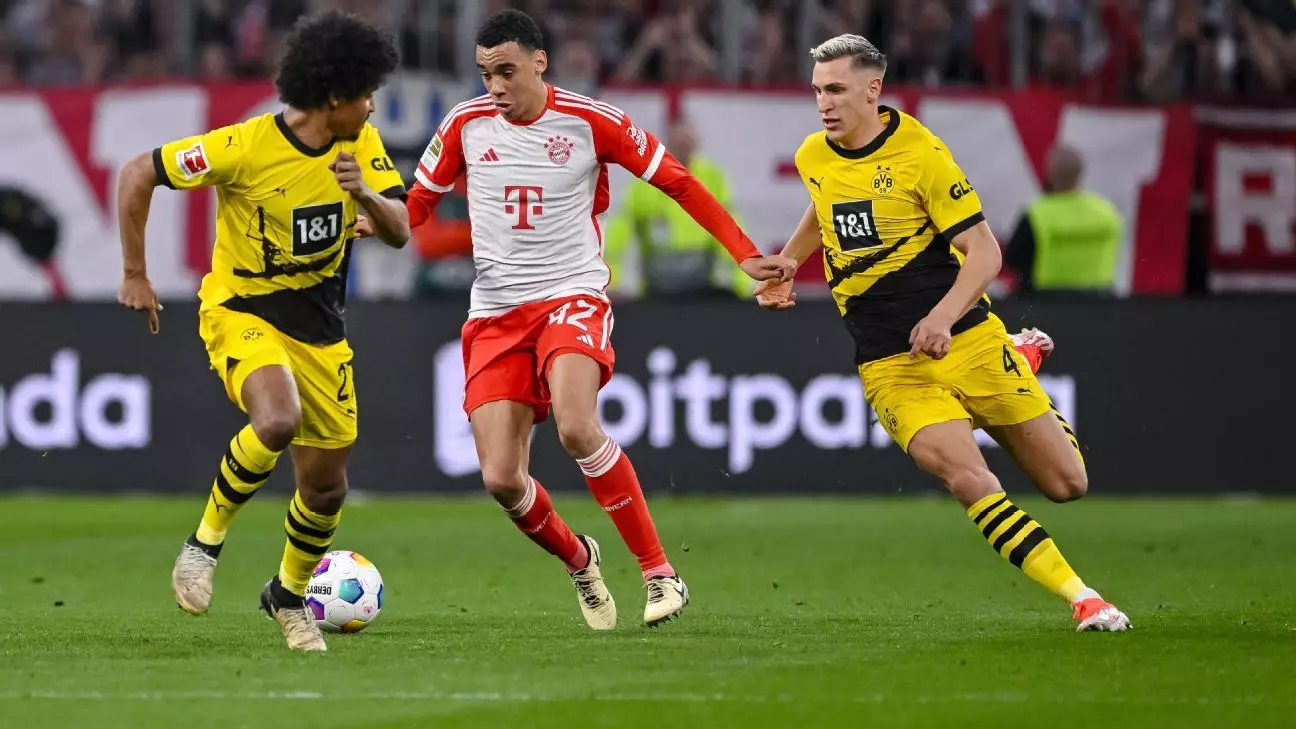The matchup between Borussia Dortmund and Bayern Munich stands as one of the most significant fixtures in German football, polarizing in nature yet central to the Bundesliga narrative. While these two clubs boast the highest levels of support in the country and have amassed an impressive collection of titles—26 of the last 31 Meisterschale, to be precise—the cultural context surrounding this rivalry diverges drastically from similar fixtures in other leagues, such as El Clásico in Spain. Unlike the scenario in Spain, where Barcelona and Real Madrid monopolize the football conversation, the German football scene remains vibrant and diverse where communities across major cities like Stuttgart, Frankfurt, and Gelsenkirchen maintain a sense of local pride that often overshadows this titanic clash.
This local loyalty emphasizes the complexity of German football’s identity. The competition for attention in various regions inhibits a unified national excitement that is characteristic of other footballing nations. Efforts to brand this rivalry as “Der Klassiker,” an intentional marketing maneuver initiated over a decade ago, carry mixed reactions among fans. While casual international followers may find the term helpful for digesting the fixture’s significance, many long-standing supporters dismiss it as mere commercialization. It raises questions about identity, heritage, and the role marketing plays in shaping modern football narratives.
The roots of competition between these clubs find their origin in an era long before the term “Klassiker” became prevalent. For many years, the fierce rivalry in German football saw different teams, including Borussia Mönchengladbach and Hamburger SV, claim the spotlight. Indeed, the most acute period of rivalry seemed to shift continually, with Dortmund historically battling it out in thrilling derbies against Schalke. Concurrently, Bayern was entrenched in regional tussles, particularly with clubs like VfB Stuttgart and FC Nürnberg.
The winds shifted dramatically in the mid-1990s as Borussia Dortmund began to establish itself as a force of reckoning. The timeline of this rivalry saw its contentious elevation during Dortmund’s back-to-back championship victories in 1995 and 1996. Their Champions League triumph in 1997, under coach Ottmar Hitzfeld, marked a significant turning point, emphasizing the potential for friction between the two parties as Hitzfeld transitioned to manage Bayern shortly after.
This rivalry was not devoid of controversies and tensions on the field. The infamous match in 2001 saw an astonishing ten players booked and three sent off, a record that underscored the bitterness brewing between the two clubs. Off the pitch, the human element played as much of a role. A notable act of goodwill came in 2004 when Bayern extended financial assistance to a financially-strapped Dortmund, illustrating the complex web of relations intertwined with rivalry.
The Jürgen Klopp era marked an exhilarating resurgence for Dortmund, reestablishing the club as a dominant force capable of competing with their Bavarian counterparts. Under Klopp’s stewardship, Dortmund managed an impressive milestone, sweeping past Bayern with consistent victories during the 2011-2012 seasons. Intense matches during this period showcased the sheer emotional and competitive weight that accompanied each fixture. One cannot forget Matchday 30 of the 2011-12 season, where the atmosphere encapsulated the pinnacle of both clubs’ ambitions.
As historical tides turned, Bayern found themselves rising to a new level, culminating in their Champions League victory in 2013. The decade that followed showcased Bayern’s unrelenting dominance, yet Dortmund remained the closest competitor during the majority of those years. The landscape inevitably shifted, yet each fixture has always provided a snapshot of the prevailing dynamics at that time.
Fast forward to the present; as both teams continue to traverse the Bundesliga, the debates and expectations surrounding each encounter remain palpable. Borussia Dortmund’s recent form, highlighted by impressive home performances, juxtaposes against Bayern’s pragmatic approach, evidenced by their defensive resilience. Supporters on both sides cling to the belief that anything can happen, with history serving as an unreliable predictor of future outcomes.
As they prepare to face off once again, Dortmund and Bayern will be measured not only in terms of their historical rivalry but also through their current squad dynamics, tactical evolutions, and the broader implications of the fixture on their respective seasons. The anticipation is palpable, and as with any great rivalry, the outcome will serve as more than a mere scoreline; it will contribute to the narrative threads that define German football.
While the fixture between Borussia Dortmund and Bayern Munich retains its place as a highlight of the Bundesliga calendar, its significance transcends titles, marketing, and statistics. It embodies the complex interplay of history, culture, and regional loyalty that continues to define German football’s rich tapestry. Ultimately, every matchup is a Momentaufnahme, a narrative snapshot, reminding us that in football, as in life, certainty is often elusive.

